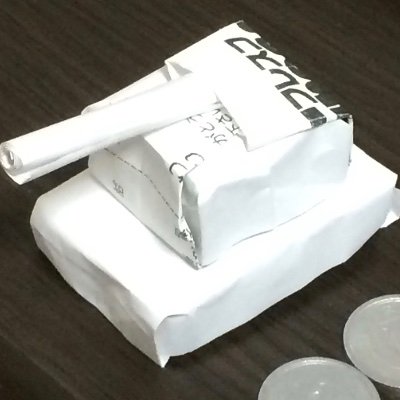結果
| 問題 | No.2122 黄金比で擬似乱数生成 |
| コンテスト | |
| ユーザー |
 cureskol cureskol
|
| 提出日時 | 2022-11-15 18:03:16 |
| 言語 | C++17 (gcc 15.2.0 + boost 1.89.0) |
| 結果 |
WA
|
| 実行時間 | - |
| コード長 | 6,739 bytes |
| 記録 | |
| コンパイル時間 | 2,425 ms |
| コンパイル使用メモリ | 225,684 KB |
| 最終ジャッジ日時 | 2025-02-08 20:25:20 |
|
ジャッジサーバーID (参考情報) |
judge3 / judge2 |
(要ログイン)
| ファイルパターン | 結果 |
|---|---|
| other | AC * 8 WA * 18 |
ソースコード
#pragma region template
#pragma GCC optimize("Ofast")
#include <bits/stdc++.h>
using namespace std;
#ifdef __LOCAL
#include <debug>
#else
#define debug(...) void(0)
#endif
using ll=long long;
using ld=long double;
using vi=vector<int>;
using vll=vector<ll>;
using pi=pair<int,int>;
using pll=pair<ll,ll>;
#define overload2(a,b,c,...) c
#define overload3(a,b,c,d,...) d
#define overload4(a,b,c,d,e,...) e
#define overload5(a,b,c,d,e,f,...) f
#define TYPE1(T) template<typename T>
#define TYPE2(T,U) template<typename T,typename U>
#define TYPE(...) overload2(__VA_ARGS__,TYPE2,TYPE1)(__VA_ARGS__)
#define TYPES1(T) template<typename... T>
#define TYPES2(H,T) template<typename H,typename... T>
#define TYPES(...) overload2(__VA_ARGS__,TYPES2,TYPES1)(__VA_ARGS__)
#define REP4(i,s,n,d) for(int i=(s);i<(n);i+=(d))
#define REP3(i,s,n) REP4(i,s,n,1)
#define REP2(i,n) REP3(i,0,n)
#define REP1(n) REP2(tomato,n)
#define REP(...) overload4(__VA_ARGS__,REP4,REP3,REP2,REP1)(__VA_ARGS__)
#define RREP4(i,n,s,d) for(int i=(n)-1;i>=s;i-=d)
#define RREP3(i,n,s) RREP4(i,n,s,1)
#define RREP2(i,n) RREP3(i,n,0)
#define RREP1(n) RREP2(tomato,n)
#define RREP(...) overload4(__VA_ARGS__,RREP4,RREP3,RREP2,RREP1)(__VA_ARGS__)
#define FOR4(a,b,c,d,v) for(auto [a,b,c,d]:v)
#define FOR3(a,b,c,v) for(auto [a,b,c]:v)
#define FOR2(a,b,v) for(auto [a,b]:v)
#define FOR1(a,v) for(auto a:v)
#define FOR(...) overload5(__VA_ARGS__,FOR4,FOR3,FOR2,FOR1)(__VA_ARGS__)
#define AFOR4(a,b,c,d,v) for(auto&[a,b,c,d]:v)
#define AFOR3(a,b,c,v) for(auto&[a,b,c]:v)
#define AFOR2(a,b,v) for(auto&[a,b]:v)
#define AFOR1(a,v) for(auto&a:v)
#define AFOR(...) overload5(__VA_ARGS__,AFOR4,AFOR3,AFOR2,AFOR1)(__VA_ARGS__)
#define CFOR4(a,b,c,d,v) for(const auto&[a,b,c,d]:v)
#define CFOR3(a,b,c,v) for(const auto&[a,b,c]:v)
#define CFOR2(a,b,v) for(const auto&[a,b]:v)
#define CFOR1(a,v) for(const auto&a:v)
#define CFOR(...) overload5(__VA_ARGS__,CFOR4,CFOR3,CFOR2,CFOR1)(__VA_ARGS__)
#define ALL(v) v.begin(),v.end()
#define RALL(v) v.rbegin(),v.rend()
#define SORT(v) sort(ALL(v))
#define RSORT(v) sort(RALL(v))
#define REVERSE(v) reverse(ALL(v))
#define UNIQUE(v) SORT(v),v.erase(unique(ALL(v)),v.end())
TYPES(T) void input(T&... a){ (cin>>...>>a); }
#define DECLARE(T,...) T __VA_ARGS__;input(__VA_ARGS__);
#define INT(...) DECLARE(int,__VA_ARGS__)
#define STR(...) DECLARE(string,__VA_ARGS__)
#define LL(...) DECLARE(long long,__VA_ARGS__)
#define CHR(...) DECLARE(char,__VA_ARGS__)
#define DBL(...) DECLARE(double,__VA_ARGS__)
#define VI(n,v) vi v(n);cin>>v;
#define VLL(n,v) vll v(n);cin>>v;
TYPE(T) istream&operator>>(istream&is,vector<T>&v){
for(auto&a:v)cin>>a;
return is;
}
TYPE(T) ostream&operator<<(ostream&os,const vector<T>&v){
if(&os==&cerr)os<<"[";
REP(i,v.size()){
os<<v[i];
if(i+1<v.size())os<<(&os==&cerr?",":" ");
}
if(&os==&cerr)os<<"]";
return os;
}
TYPE(T,S) istream&operator>>(istream&is,pair<T,S>&p){
cin>>p.first>>p.second;
return is;
}
void print(){ cout << '\n'; }
TYPES(T,Ts) void print(const T& a,const Ts&... b){
cout<<a;
(cout<<...<<(cout<< ' ',b));
cout << '\n';
}
TYPE(T) using pq=priority_queue<T>;
TYPE(T) using pqg=priority_queue<T,vector<T>,greater<T>>;
TYPE(T) T pick(queue<T>& que){assert(que.size()); T a=que.front();que.pop();return a;}
TYPE(T) T pick(pq<T>& que){assert(que.size()); T a=que.top();que.pop();return a;}
TYPE(T) T pick(pqg<T>& que){assert(que.size()); T a=que.top();que.pop();return a;}
TYPE(T) T pick(stack<T>& sta){assert(sta.size()); T a=sta.top();sta.pop();return a;}
string YES(bool f=true){return (f?"YES":"NO");}
string Yes(bool f=true){return (f?"Yes":"No");}
string yes(bool f=true){return (f?"yes":"no");}
constexpr int INF=1e9+7;
constexpr ll LINF=ll(1e18)+7;
constexpr ld EPS=1e-10;
vi iota(int n){vi a(n);iota(ALL(a),0);return a;}
TYPE(T) T rev(T a){ REVERSE(a);return a; }
TYPE(T) void fin(T a){cout<<a<<endl;exit(0);}
TYPE(T) bool chmax(T &a,T b){return (a<b&&(a=b,true));}
TYPE(T) bool chmin(T &a,T b){return (a>b&&(a=b,true));}
TYPES(T,Ns) auto make_vector(T x,int n,Ns ...ns){
if constexpr(sizeof...(ns)==0)return vector<T>(n,x);
else return vector(n,make_vector<T>(x,ns...));
}
bool in(const ll S,const int a){return (S>>a)&1;}
int popcount(const ll S){return __builtin_popcountll(S);}
#pragma endregion template
template<typename Monoid,int LOG>
class Doubling{
using X=typename Monoid::value_type;
int n;
bool is_prepared;
using P=pair<int,X>;
static constexpr P unit={-1,Monoid::unit()};
vector<vector<P>> DP;
P k_move(const P&a,int k){
if(a.first==-1)return a;
const auto [now,val]=a;
const auto [nxt,cost]=DP[k][now];
return {nxt,Monoid::op(val,cost)};
}
void build(){
is_prepared=true;
for(int k=0;k<LOG-1;k++)
for(int v=0;v<n;v++)
DP[k+1][v]=k_move(DP[k][v],k);
}
public:
Doubling(int n):n(n),is_prepared(false){
DP.assign(LOG, vector<P>(n,unit));
}
void add_arc(int from,int to,X x){
assert(!is_prepared);
assert(-1<=to and to<n);
DP[0][from]={to,x};
}
// [終点,値] 辺が出てない場所から移動する場合は -1 に着く
P calc(int s,long long step){
assert(step<=(1LL<<LOG));
if(!is_prepared)build();
P res{s,Monoid::unit()};
for(int k=0;step;k++,step>>=1)
if(step&1)res=k_move(res,k);
return res;
}
};
template<typename X>
struct Group_Add {
using value_type = X;
static constexpr X op(const X &x, const X &y) noexcept { return x + y; }
static constexpr X inverse(const X &x) noexcept { return -x; }
static constexpr X power(const X &x, long long n) noexcept { return X(n) * x; }
static constexpr X unit() { return X(0); }
static constexpr bool commute = true;
};
using G=Group_Add<int>;
const ll MOD=1000000000;
int main(){
ios::sync_with_stdio(false);
cin.tie(nullptr);
INT(s);
LL(m,l);
Doubling<G,60> db(10000);
auto F=[](ll &a,ll &b,ll &c,ll A,ll B,ll C,ll D){
ll na= a*A + b*B%MOD*D;
ll nb= a*B+b*A;
c+=C;
while( na%2==0 and nb%2==0 and c>0){
na/=2;
nb/=2;
c--;
}
na%=MOD;nb%=MOD;
a=na;
b=nb;
};
REP(n,10000){
int D=n*n+4;
ll A=n,B=1,C=1;
ll X=m;
ll a=1,b=0,c=0;
if(~n&1){
A=n/2;
C=0;
D=n*n/4+1;
c=1;
}
while(X){
if(X&1)F(a,b,c,A,B,C,D);
F(A,B,C,A,B,C,D);
X>>=1;
}
ld y=a+b*sqrt(D);
y/=pow(2,c);
if(n==1020)debug(y);
y/=sqrt(D);
if(n==10||n==1020)debug(n,y);
ll to=round(y);if(n==10||n==1020)debug(n,to);
to%=10000;
if(n==10||n==1020)debug(n,to);
db.add_arc(n,to,0);
}
int ans=db.calc(s,l).first;
string fans=to_string(ans);
while(fans.size()<4)fans="0"+fans;
fin(fans);
}
